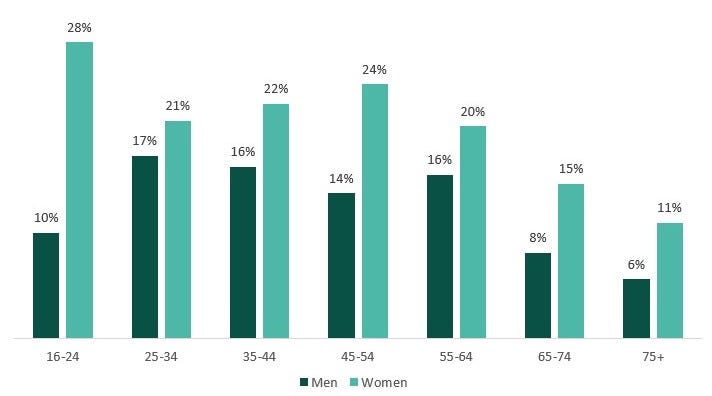Throughout this past year, COVID-19 has been such a major part of everybody’s lives in the sense that we have had to adapt to a new way of living: 2 metres distance between people, face masks compulsory, only groups of 6, no mixing of households and only essential travel allowed (the list is exhaustive).
So it is fair to say that, a year on, people are starting to reach a limit on how many of these restrictions they can abide by because as humans we thrive off social interactions with others in our daily life.
As well as just our collective tiredness of this pandemic there is a bigger, less spoken about the issue that more and more people are struggling with:
Mental health.
I have previously written about the importance of understanding mental health, and the best ways to go about making sure it doesn’t affect your daily life or let it get the best of you. However, this article will be focusing on possible reasons why so much emphasis has been placed on mental health during the pandemic when it was once a taboo subject.
Since the start of the pandemic, the demand for health services has increased at an exponential rate. We can only assume this is due to social isolation, disconnection from your peer group, quarantine and lockdowns. Being in another national lockdown does not provide hope for many people, and makes them wonder what the Government’s intentions are.
“Over 60 per cent reported disruptions to mental health services for vulnerable people, including children and adolescents (72 per cent), older adults (70 per cent), and women requiring antenatal or postnatal services (61 per cent)” — World Health Organisation Survey
We see it all over social media, the news and out and about: how to look after yourself during a pandemic. From personal experience, most of the support for mental health has been prioritised towards students and people in their 20s and early 30s.
This could be since continuous online learning (and working) is proving to be increasingly harder, or because these are the only generations of people who tend to be more explicit about the way they’re feeling. Especially if they know hundreds of other people feeling the same way (meaning fewer people can feel embarrassed about it).
Even though we have been doing this for almost a year now, it’s clear to see that motivation in my generation is dwindling, and it’s not that we’re lazy, but because we are mentally and emotionally exhausted.
However, a question I have to ask is: where was the emphasis on support for mental health before the pandemic, and will this emphasis continue once COVID has subsided?
In 2019, three-quarters of suicides were amongst men which is consistent with the rate for 2018 and is the highest it has ever been since 2000 from the ages of 45 to 49.
As well as this, the suicide rate for under 25s had drastically increased - especially in females aged 10 to 24 years old. Research shows that the females in this age gap suffered from self-confidence issues, which led them to be diagnosed with anxiety, depression and various eating disorders.

This may be a sensitive topic, but it is something that will affect everybody in their lives. It is proven that 1 in 4 people will directly experience a mental health issue at some point - diagnosed or undiagnosed. It’s a topic that still has a stigma attached to it, suggesting that not many people are willing to get treated or talk about their feelings, emotions or mental health to anyone else.
Only 1 in 18 adults are willing to get treatment for it; the most common treatment being psychiatric medication. In a typical week in the UK, 8 in 100 people will get diagnosed with depression; 6 in 100 will be diagnosed with Generalised Anxiety Disorder, and 4 in 100 with PTSD.
People most likely to be affected by this include LGBTQ+ members, Black or Black British members, or young men and women aged 16–24.
Your identity does not give you mental health problems, nor does it strip you of your right to seek help.
These statistics were gathered before we realised COVID existed and, as we know, support has drastically increased during the pandemic because people are starting to come forward with their problems - something that we should encourage more after COVID eases down.
We can only hope our mental health is still a priority after this all subsides, because if we don’t look after it, it will eat away at us until we can’t cope, and we could end up in a never-ending hole of unsatisfaction unable to get out.
If you know someone who struggles dearly with their mental health, make sure you do check upon them. It doesn’t need to be every day, but now and then, let them know you still care.
If you are someone who struggles then if you are comfortable with it, talk about it to someone you trust. If you wish to remain anonymous then there are plenty of options for you to choose from. I have attached a link to this page which will relocate you to a list of numbers and helplines you can contact if needed.















